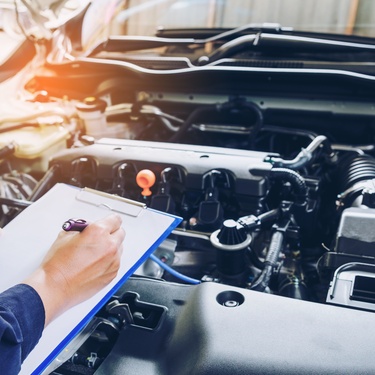
Keeping your vehicle in great condition is about more than avoiding breakdowns. Regular maintenance increases safety, prolongs the life of your car, and can save you money on costly repairs. If you’re new to car care or want a quick refresher, follow this essential guide to vehicle maintenance basics.
Check Your Fluids Regularly
Fluids serve as your car’s lifeblood, and checking them frequently helps spot potential issues early. Start with your engine oil and refer to your owner’s manual for the recommended oil change intervals. Low oil levels or old oil can cause engine wear. Different types of motor oil work best depending on your car’s specific requirements.
Also, check the coolant to maintain the engine temperature and prevent overheating. Don’t forget brake fluid, which is critical for safe braking. Keep an eye on the power steering fluid and windshield washer fluid while you’re at it.
Inspect Your Tires
Tires impact safety, fuel economy, and the smoothness of your ride. Check the tire pressure weekly with a gauge and compare readings to the recommended PSI in your car’s manual. Low tire pressure can cause poor traction, while high tire pressure increases wear.
Next, inspect the tread depth. A simple way is to insert a penny into the tread grooves with Lincoln’s head pointing down. If you can see his entire head, the tread is too low, and it’s time for new tires.
Test Your Lights
It’s easy to overlook vehicle lights, but they are crucial for visibility and signaling to others on the road. At least once a month, check your headlights, brake lights, turn signals, and reverse lights.
Enlist someone’s help or park in front of a reflective surface to verify everything works correctly. Replacing a burnt-out bulb is typically straightforward, and you can find affordable replacements at most auto stores.
Battery Health
The battery powers your vehicle’s electrical components, so keep it in top condition. Check the terminals for corrosion and clean them with water and baking soda if buildup appears. Make sure the connections are secure to prevent power loss.
Test the battery’s voltage regularly, especially before extreme weather seasons, as both heat and cold can impact the battery’s efficiency. If your battery is older than three years, consider replacing it.
Brakes Inspection
Healthy brakes play a vital role in road safety. Listen for squealing or grinding noises, which can indicate worn-out brake pads. Inspect the pads and rotors yourself or have a professional assess them during routine maintenance.
Vibrations when stopping can also signal brake issues. Addressing these problems promptly enhances performance and prevents more significant damage.
Air Filters
Your car’s air filters help keep the engine free of dirt and debris while improving fuel efficiency. Dirty filters can reduce performance and increase emissions.
Check the air filter every 12,000 to 15,000 miles, depending on your driving conditions and mileage. Replacing the filter is simple and inexpensive, so don’t delay when you see it’s clogged or visibly dirty.
Prioritizing basic vehicle maintenance enhances safety, saves money, and keeps your car running smoothly. By checking fluids, inspecting tires, and testing other essential components, you’ll avoid unexpected stress down the road. For professional resources, consult your local mechanic or refer to manufacturer guidelines for vehicle care. Start maintaining your car today and enjoy the benefits of a reliable ride.
Bio: Casey is a passionate copyeditor highly motivated to provide compelling SEO content in the digital marketing space. Her expertise includes a vast range of industries from highly technical, consumer, and lifestyle-based, with an emphasis on attention to detail and readability.

























